Publications
Articles, publications, books, tools and multimedia features from the U.S. Institute of Peace provide the latest news, analysis, research findings, practitioner guides and reports, all related to the conflict zones and issues that are at the center of the Institute’s work to prevent and reduce violent conflict.
Question And Answer
Amid a Changing Global Order, NATO Looks East
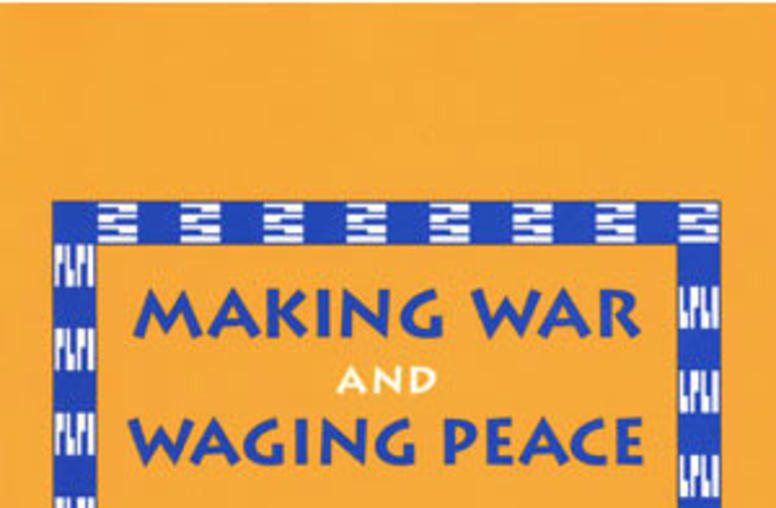
Making War and Waging Peace
This volume focuses on the role and effectiveness of external intervention in sub-Saharan Africa, primarily during the 1980’s. The authors include a range of Western and African scholars and policymakers with extensive experience in Africa.
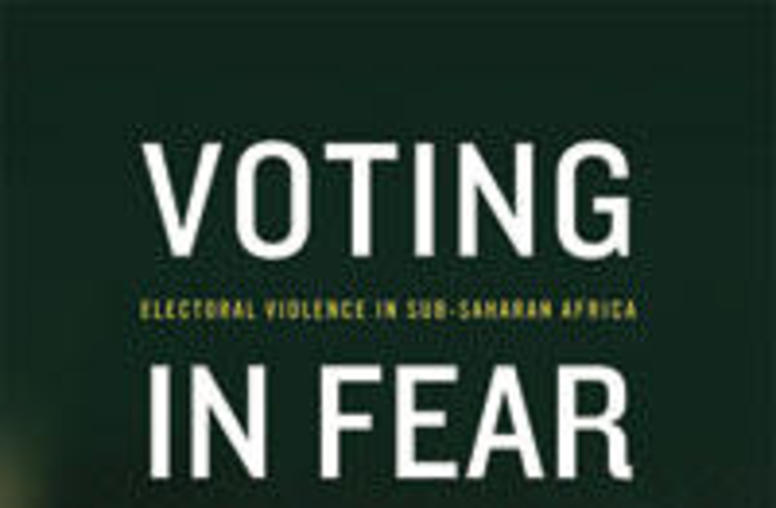
Voting in Fear
In Voting in Fear, nine contributors offer pioneering work on the scope and nature of electoral violence in Africa; investigate the forms electoral violence takes; and analyze the factors that precipitate, reduce, and prevent violence. The book breaks new ground with findings from the only known dataset of electoral violence in sub-Saharan Africa, spanning 1990 to 2008. Specific case studies of electoral violence in countries such as Ghana, Kenya, and Nigeria provide the context to further un...
Special Prosecutor's Office: Ethiopia
Commission of Inquiry: The Special Prosecution Process by the Office of the Special Prosecutor Duration: 1993 – 2007(?) Charter: Proclamation No. 22/1992 Commissioners: more than 400 staff at peak Report: [Public report on first year of activities]

Susan Stigant on Ethiopia’s Escalating Civil Conflict
As rising violence in Ethiopia threatens to pull neighboring Eritrea into the fray, USIP’s Susan Stigant says, “There is a real need for some external, independent investigator to help diffuse some of that escalation” and look into disturbing reports of human rights violations stemming from the conflict.

The Unfolding Conflict in Ethiopia
Susan Stigant, director of Africa Programs at the U.S. Institute of Peace, testified on December 3, 2020 at the House Foreign Affairs Subcommittee on Africa, Global Health, Global Human Rights and International Organization's hearing on “The Unfolding Conflict in Ethiopia.” Her expert testimony as prepared is presented below.

Payton Knopf on What’s Ahead for the Horn of Africa in 2020
As Arab Gulf states and Turkey ramp up their competition for influence in the Horn of Africa, USIP’s Payton Knopf says the increased attention “has tended to exacerbate some of the internal tensions and political insecurities” in Ethiopia and Sudan—two states undergoing democratic transitions vital for regional stability.
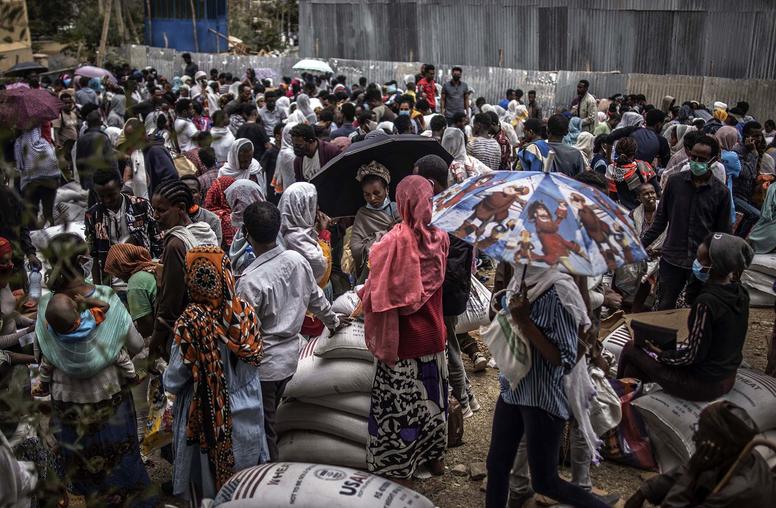
Five Steps to Sustain a Cease-Fire in Northern Ethiopia
After months of war and amid an intensifying humanitarian crisis in Ethiopia’s northern region of Tigray, the Ethiopian government unilaterally declared a “humanitarian cease-fire” on June 28. If Ethiopia wants this truce to end the war it needs to persuade Tigrayan forces, which have so far vowed to keep fighting, to agree to a deal. As a prelude to wider negotiations, the odds of ending the conflict would improve if confidence building measures are urgently undertaken and five key areas of a truce expanded. U.S. and international partners can promote these steps while recognizing that Ethiopians must own any cease-fire process.

Joseph Sany on the Turmoil in Ethiopia and China’s Role in Africa
As China steps up its engagement in Africa amid lagging vaccination rates and tensions in Ethiopia, USIP’s Joseph Sany says U.S. policy must avoid a narrow, competitive mindset: “[China] is doing what a major superpower does … [the United States] must address African interests, not impose American interests.”
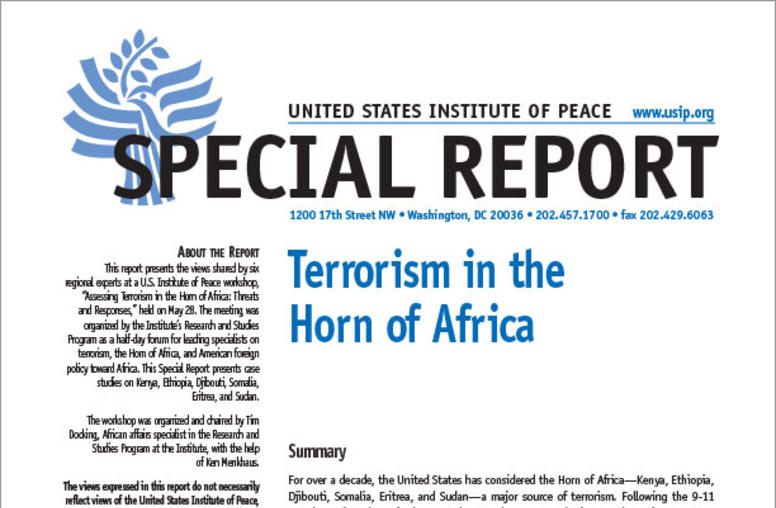
Terrorism in the Horn of Africa
Summary For over a decade, the United States has considered the Horn of Africa—Kenya, Ethiopia, Djibouti, Somalia, Eritrea, and Sudan—a major source of terrorism. Following the 9-11 attacks against the United States, the Horn has come under increased scrutiny as a strategic focal point in the war against terrorism. In May 2003, the Kenyan government admitted that a key member of the al Qaeda terror network was plotting an attack on western targets, confirming al Qaeda's firm local ...
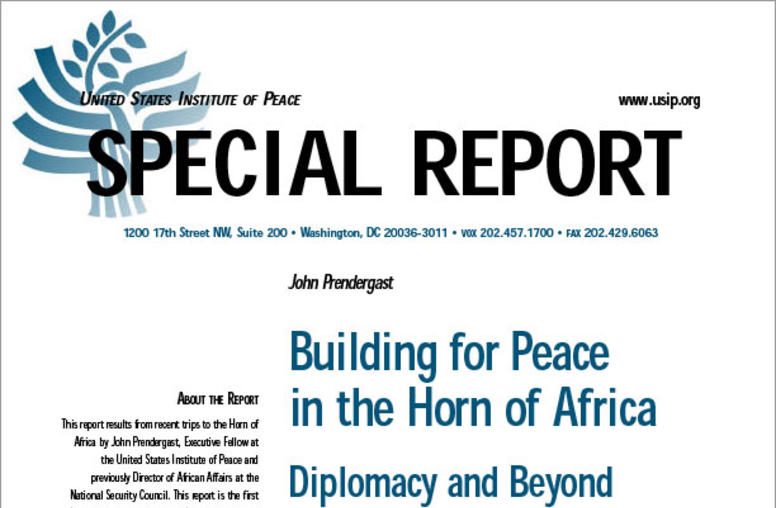
Building for Peace in the Horn of Africa: Diplomacy and Beyond
Summary Already the deadliest conflict cluster in the world, the Horn of Africa has exploded again because of the intensification of the once-improbable Ethiopia-Eritrea war. Support by Ethiopia and Eritrea for proxy militias in Somalia has reignited the Somali civil war and threatened the south with renewed famine.